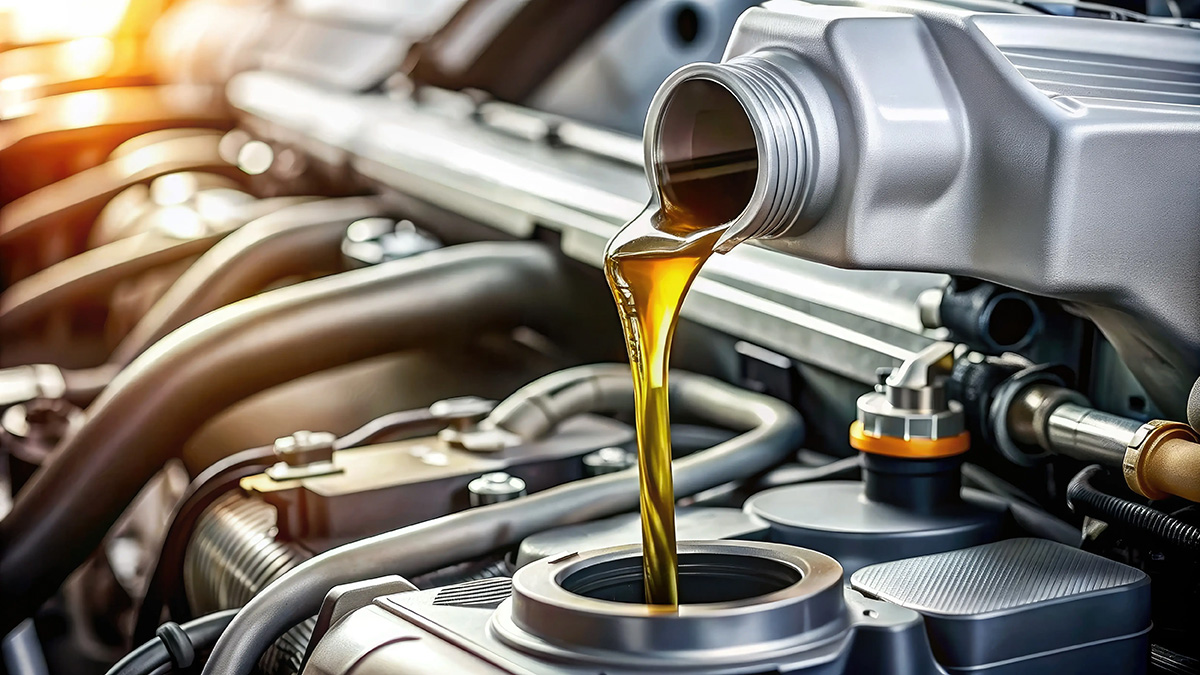
The Role of Lubricants and Fluids in Modern Vehicles
Introduction
Modern vehicles are more advanced than ever, relying on complex mechanical and electronic systems that demand precise care. While parts like engines, transmissions, and braking systems often take the spotlight, one vital element is sometimes overlooked: lubricants and fluids.
These substances are the lifeblood of every automobile, reducing friction, cooling components, and protecting against wear. From engine oils to transmission fluids, the right choice directly influences performance, efficiency, and vehicle longevity. For workshops and distributors, sourcing high-quality lubricants is just as important as supplying genuine parts. This is why companies like ECT AutoCore Trading ensure a steady supply of trusted European fluids worldwide.
Why Lubricants Matter
Lubricants and fluids serve multiple essential functions:
-
Friction Reduction: Minimizing wear between moving parts.
-
Cooling: Carrying away heat generated by engines and transmissions.
-
Cleaning: Preventing sludge, deposits, and corrosion.
-
Sealing: Assisting gaskets and seals to maintain system integrity.
-
Protecting: Forming a barrier against rust and chemical breakdown.
Without the correct fluid, even the best-engineered car can suffer from reduced performance and costly breakdowns.
Types of Automotive Lubricants and Fluids
1. Engine Oils
Engine oil is the most critical fluid in a vehicle. It lubricates pistons, camshafts, and bearings, reducing friction and extending engine life. Modern synthetic oils also improve fuel efficiency and lower emissions.
ECT AutoCore Trading supplies premium oils, including Oilfino products from Germany, directly in their original factory packaging.
2. Transmission Fluids
Automatic and manual transmissions rely on specialized fluids to ensure smooth gear shifting and prevent overheating. High-quality fluids also protect clutches and torque converters from premature wear.
3. Coolants and Antifreeze
Coolants regulate engine temperature, preventing overheating in summer and freezing in winter. Genuine antifreeze formulas also protect against corrosion inside radiators and water pumps.
4. Hydraulic Fluids
Brake and steering systems rely on hydraulic fluids to transmit force safely and reliably. Using the wrong fluid can compromise braking performance and vehicle control.
5. Greases and Specialty Lubricants
Greases provide long-term lubrication for bearings, joints, and suspension parts, while specialty sprays and coatings protect from rust and environmental wear.
The Impact of Quality Fluids on Performance
-
Engine Efficiency
Low-quality oils degrade faster, leaving engines vulnerable. Genuine lubricants maintain viscosity and provide stable performance under extreme conditions. -
Transmission Longevity
Poor fluids can cause slipping gears and transmission overheating. Using the correct OEM-approved fluid ensures smooth, precise shifting. -
Safety Systems
Brake fluids must maintain consistent hydraulic pressure. Any contamination or mismatch can result in dangerous failures. -
Environmental Protection
Modern lubricants are designed to reduce emissions and meet international eco-standards. This supports sustainability in the automotive industry.
Common Mistakes with Fluids
-
Mixing Different Brands or Types: Can cause chemical breakdown and damage.
-
Using Non-Approved Fluids: May void warranties and compromise performance.
-
Ignoring Replacement Intervals: Leads to sludge, corrosion, and system failures.
Workshops must educate customers about the importance of following the manufacturer’s guidelines.
Case Study: European OEM Standards
European automakers such as Mercedes-Benz, BMW, Audi, and Volkswagen specify strict requirements for fluids used in their vehicles. For example:
-
Mercedes-Benz engines often demand low-ash synthetic oils.
-
BMW specifies Longlife oil standards.
-
Volkswagen enforces VW-specific oil codes like 504.00/507.00.
By sourcing directly from certified suppliers, ECT AutoCore Trading guarantees workshops access to the exact fluids recommended by automakers—delivered in factory packaging with complete documentation.
Opportunities for Workshops and Distributors
With growing demand for preventive maintenance, workshops can build customer trust by:
-
Stocking genuine European lubricants.
-
Offering fluid checkups as part of regular servicing.
-
Partnering with trusted distributors like ECT AutoCore to ensure steady supply and competitive pricing.
Conclusion
Lubricants and fluids may seem secondary compared to visible components like engines or brakes, but in reality, they are the unseen guardians of modern vehicles. Using the right oils, coolants, and hydraulic fluids ensures not only performance and longevity but also safety and environmental compliance.
For workshops, resellers, and car owners, the message is clear: fluids are not optional—they are essential. And with distributors such as ECT AutoCore Trading, accessing premium European lubricants has never been easier. By combining authentic parts with genuine fluids, businesses can deliver complete care, performance, and reliability to every vehicle they service

